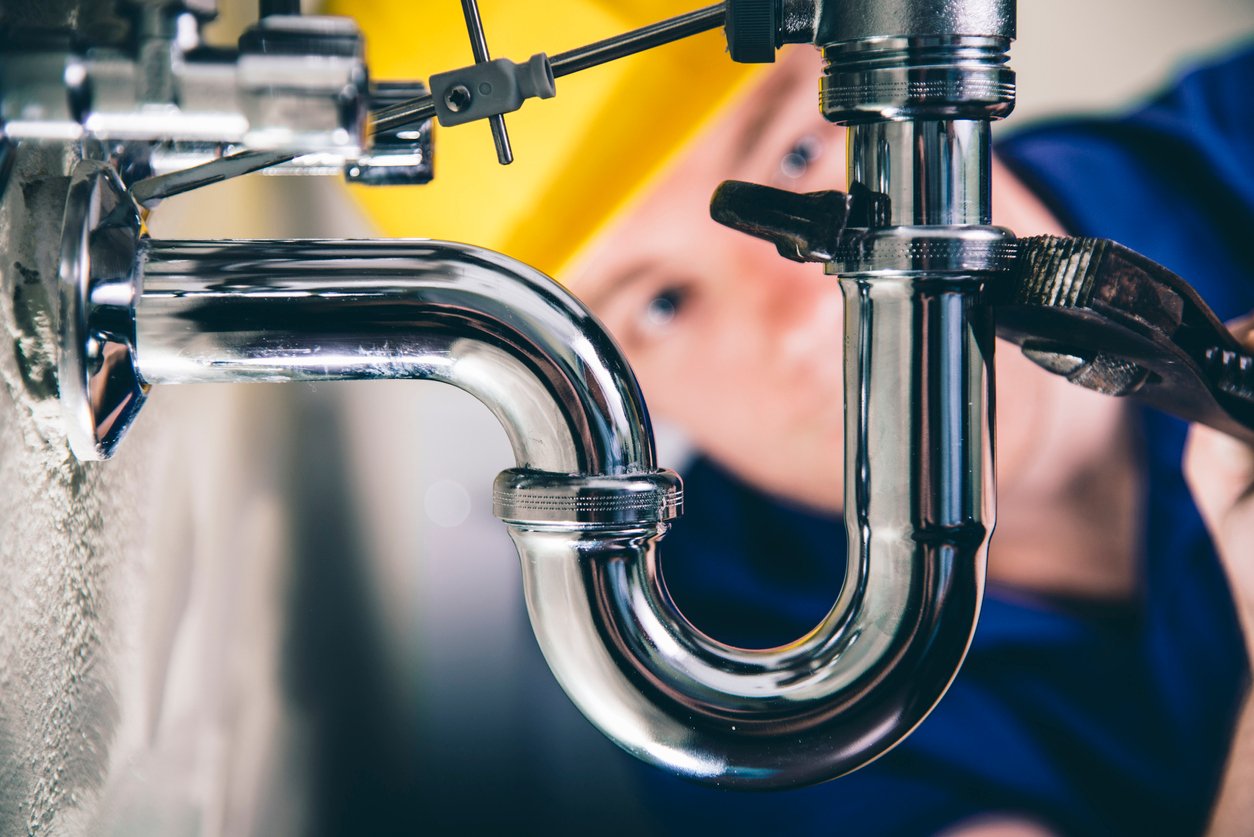Updated December 2025
Many people have an image of plumbing as being about clogged drains and overflowing toilets. But that’s far from the complete picture.
The truth is that the plumbing trade offers steady demand and a diverse range of career opportunities across Ontario. Want to focus on home plumbing services? Industrial steamfitting? Fire protection? You have plenty of options.
In this blog, we outline various types of plumbers and plumbing specializations so you can discover the path that’s right for you.
TABLE OF CONTENTS
- Residential Plumber
- Commercial Plumber
- Gas Technician
- Pipelayer
- Steamfitter/Pipefitter
- Sprinkler Fitter
- Plumbing Supervisor/Contractor
RESIDENTIAL PLUMBER
This is the most well-known plumber career path. Residential plumbers work directly with homeowners, handling everything from basic maintenance to home plumbing emergencies.
Residential plumbers need excellent communication and customer service skills. They should also be good at solving problems—it’s not uncommon to be called to fix a botched DIY job.
Common tasks include:
- Clearing clogged drains and pipes
- Fixing problems with water pressure or drainage
- Installing plumbing systems during home renovations
- Upgrading or repairing fixtures like sinks, toilets, showers, and water heaters
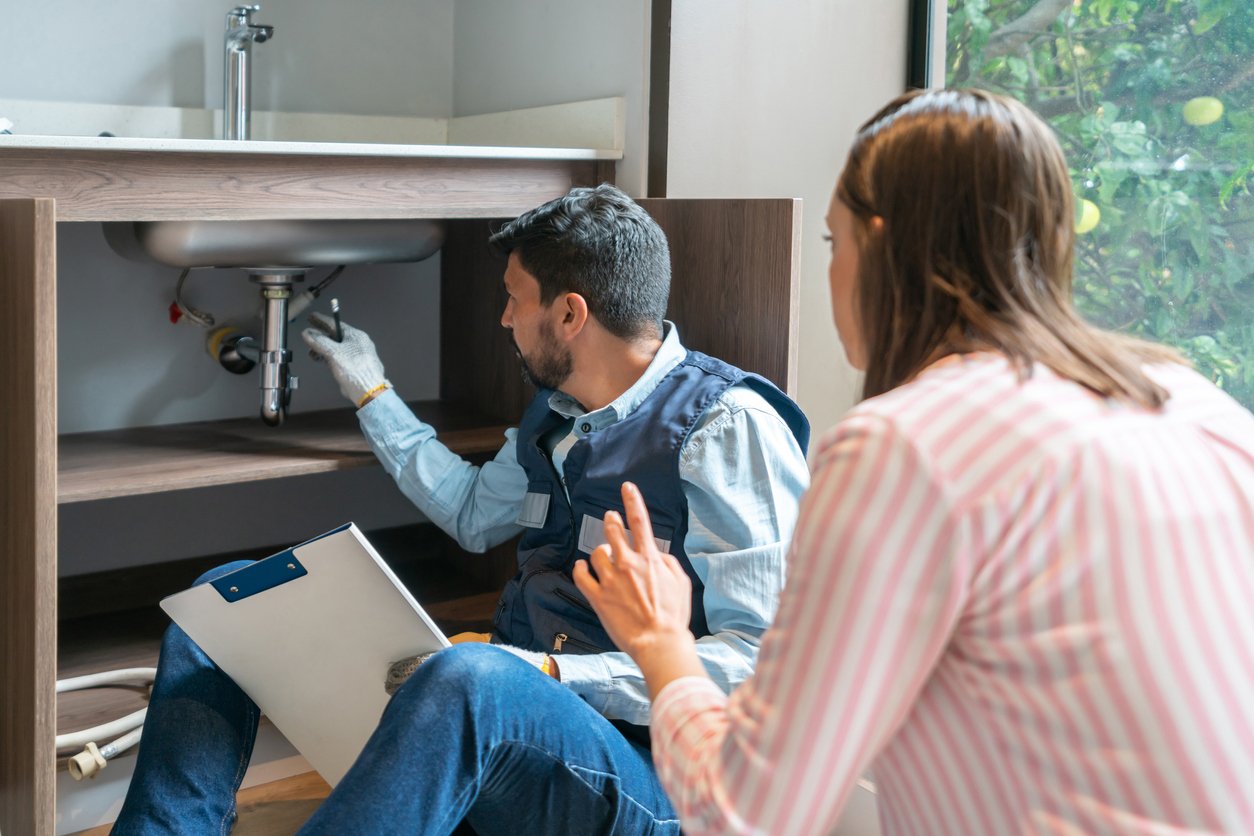 Residential plumbers need top-notch customer service skills
Residential plumbers need top-notch customer service skills
Salary
The Government of Canada Job Bank says plumber wages in Ontario range from $20 an hour for those just starting out to $50.38 an hour for the highest earners. The median wage is $32.50 an hour.
Typically, residential service and repair plumbers earn slightly less than commercial plumbers.
Education Requirements
You must complete an apprenticeship to become a licensed plumber in Ontario. That involves 8,280 hours of paid on-the-job training as well as 720 hours of school training—about five years in total.
You can boost your odds of landing an apprenticeship by completing plumbing pre-apprenticeship training at a trade school.
COMMERCIAL PLUMBER
While residential plumbing focuses on homes, commercial plumbers work with piping systems in settings like office buildings, schools, malls, hotels, hospitals, and restaurants.
A plumbing business might have a commercial and residential team since the work itself is similar. However, commercial plumbers differ from residential plumbers because they typically deal with contractors rather than homeowners, and commercial plumbing systems tend to be larger and more complex than those found in the average home.
Commercial plumbers must be familiar with special code requirements for different commercial structures. They also need to be able to handle the pressure of emergency plumbing situations that could disrupt business operations.
Salary
The Job Bank says plumbers in Ontario make anywhere between $20 and $50.38 an hour, with the median wage sitting at $32.50 an hour. Commercial plumbers tend to make more than those who focus on the residential side.
Education Requirements
Becoming licensed as a plumber in Ontario requires completing an apprenticeship, which takes roughly five years. Trade school training can help you stand out as an apprenticeship candidate.
GAS TECHNICIAN
Gas technicians install and maintain gas lines and connect gas-powered appliances. They must adhere to building codes and follow strict regulations for gas line safety.
Many plumbers are cross-trained as gas technicians, allowing them to offer a broader range of gas and plumbing services. For example, replacing a water heater requires disconnecting and reconnecting both plumbing and gas lines.
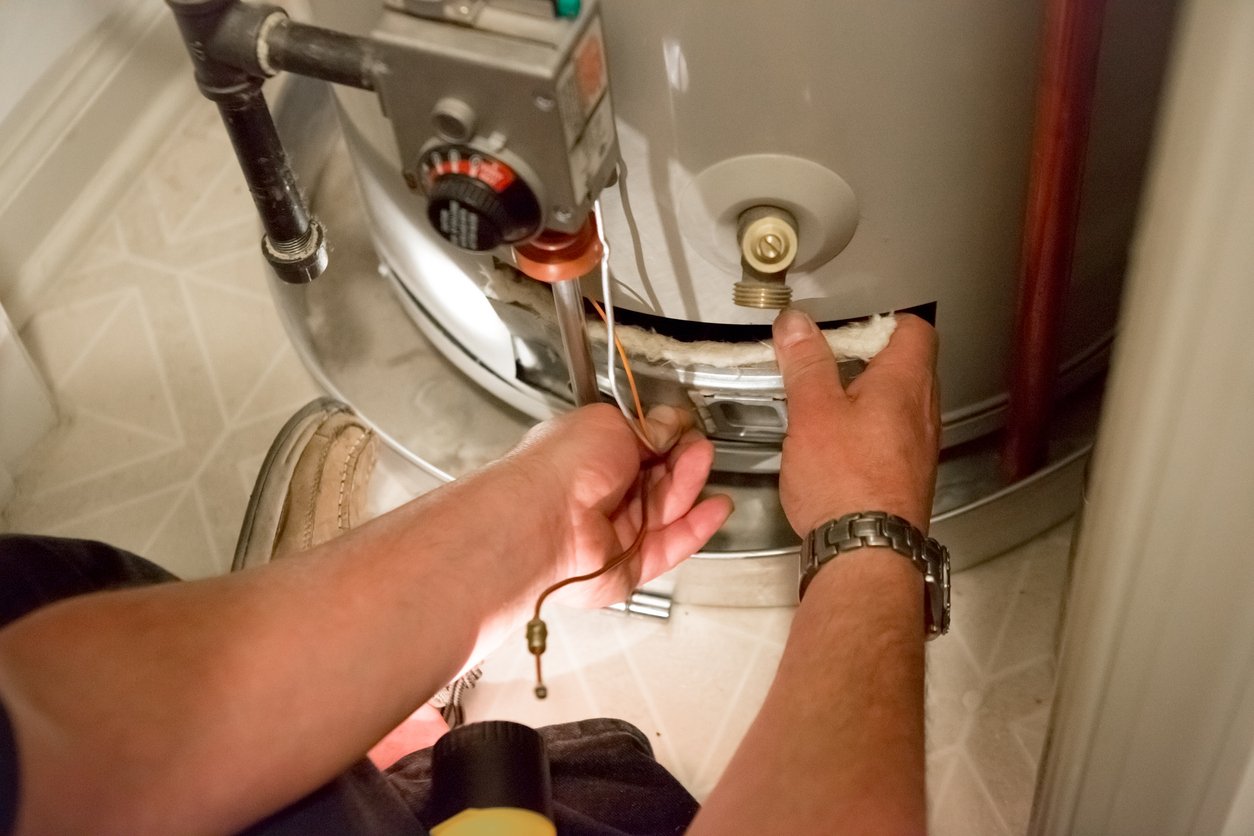 Water heater installation and repair often requires gas tech certification
Water heater installation and repair often requires gas tech certification
Salary
The Job Bank says the median wage for gas technicians in Ontario is $36.06 an hour. Wages range from $26 an hour at the low end to $62.50 an hour at the high end.
Education Requirements
In Ontario, gas technicians must be licensed by the Technical Standards and Safety Authority (TSSA). Newcomers start at the G3 level, which allows you to work on gas piping and appliances under supervision.
At Herzing, we offer a combined plumbing pre-apprenticeship + gas tech program that allows you to graduate with your G3 licence.
PIPELAYER
Pipelayers are another type of plumber who are involved in pipeline construction. They install and repair the underground pipes that transport water, sewage, or other materials.
A pipelayer’s typical responsibilities include:
- Clearing debris and digging trenches to prepare for underground pipe installation
- Ensuring that trenches are properly sloped for drainage
- Positioning, joining, and sealing pipes
- Connecting pipes to sewer and water mains
Salary
According to PayScale, pipelayers in Canada earn a median wage of $32.05 an hour. Hourly rates range from $21.99 to $38.
Our research found job postings for pipelayers in Ontario that paid anywhere from $22 to $50 an hour.
Education Requirements
Training is typically done on the job. However, pipe welding skills and construction experience are helpful.
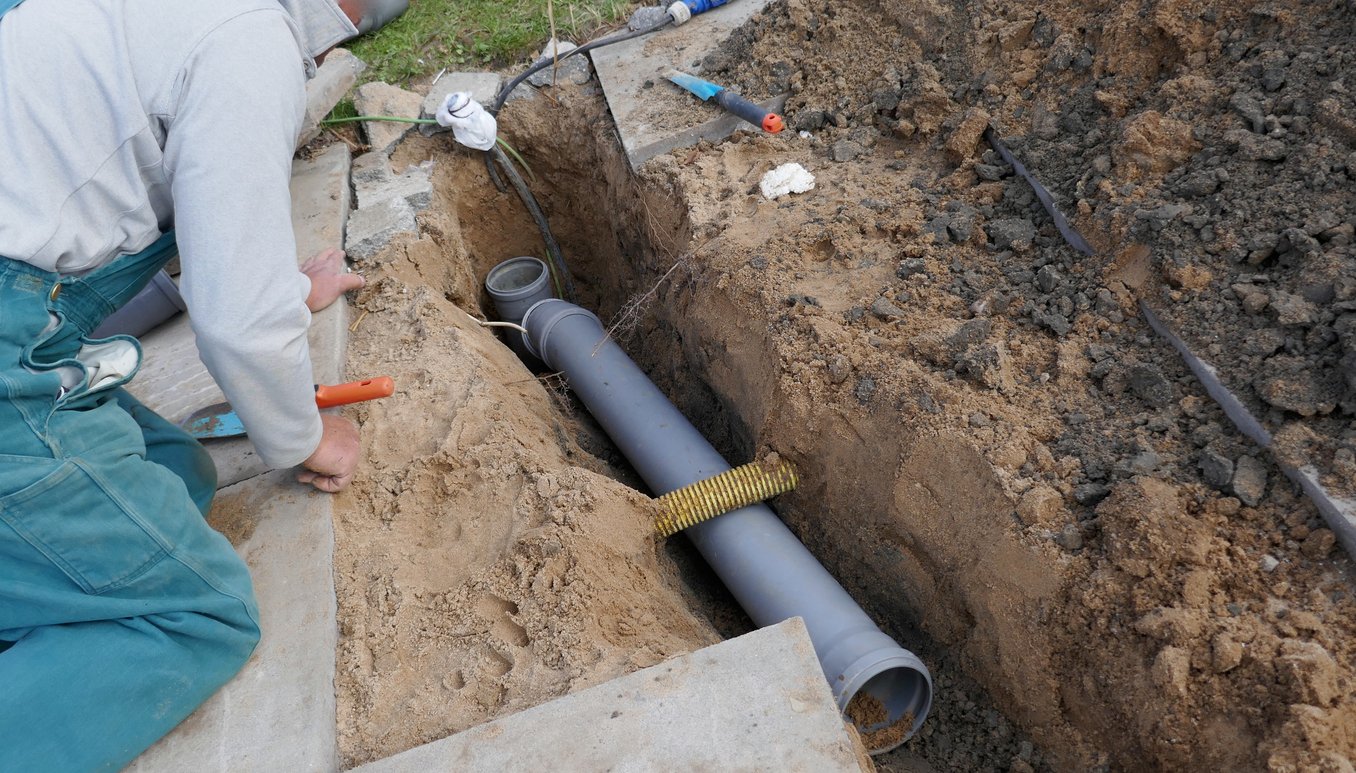 Pipelayers often focus on water or sewer pipe installation
Pipelayers often focus on water or sewer pipe installation
STEAMFITTER/PIPEFITTER
Pipefitters assemble and service piping systems that carry water, gas, chemicals, or other substances in manufacturing and industrial settings. They cut, thread, and weld pipes to create precise fits and connections.
Steamfitters are pipefitters who specialize in systems carrying high-pressure gases or liquids, particularly steam. Steam piping systems are commonly used for power generation, heating, and other industrial processes.
Because the two roles are so similar, the terms are often used interchangeably in the plumbing industry. In fact, the Red Seal program considers them the same thing.
Salary
Steamfitters and pipefitters in Ontario earn between $28 and $56.88 an hour, according to Job Bank data. The median wage is $45.96 an hour.
Education Requirements
Like plumbing, steamfitting is a compulsory trade in Ontario. You must become certified, and that means you must complete an apprenticeship. The process takes about five years.
SPRINKLER FITTER
Another potential plumber career path involves fire suppression systems.
Sprinkler fitters focus on the setup, maintenance, and repair of fire sprinkler systems. They install pipes, valves, sprinkler heads, and other necessary components, and they ensure the system meets applicable safety standards.
Salary
The Job Bank says Ontario’s sprinkler fitters earn a median wage of $45.96 an hour. Rates vary from $28 at the low end to $56.88 at the high end.
Education Requirements
You must become certified to work in this trade in Ontario. An apprenticeship in sprinkler and fire protection installation takes about four years in total.
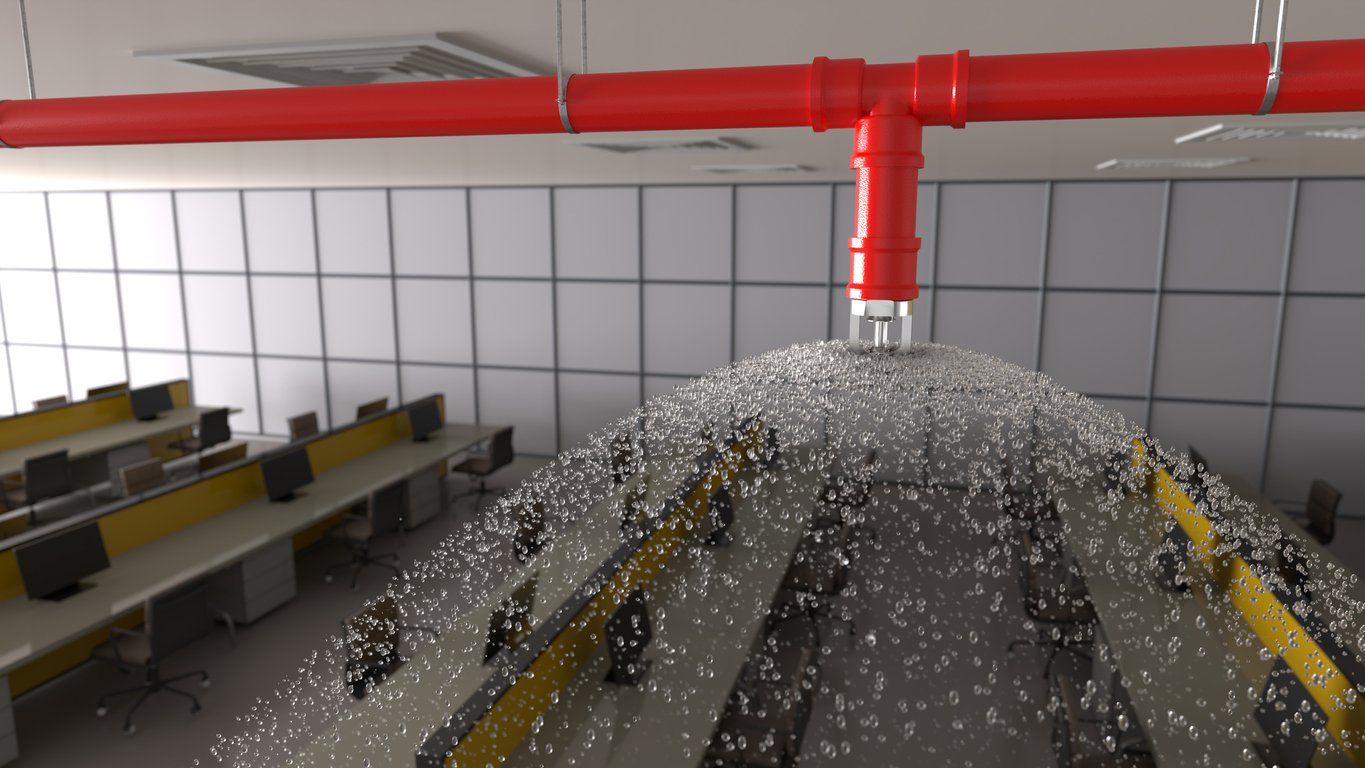 Sprinkler fitters must ensure the system provides adequate coverage
Sprinkler fitters must ensure the system provides adequate coverage
PLUMBING SUPERVISOR/CONTRACTOR
Plumbing supervisors and contractors oversee and manage plumbing projects, ensuring they are completed efficiently, safely, and within budget. These types of plumbers liaise with clients, manage people and materials, and ensure the work meets quality and safety standards.
Salary
Hourly wages for plumbing supervisors/contractors in Ontario range from $24.20 to $65.48, according to the Job Bank. The median wage is $53.43 an hour.
Education Requirements
You need several years of experience in a pipe trade to advance to a supervisory or management role.
GET STARTED ON A PLUMBER CAREER PATH
Herzing College’s plumbing pre-apprenticeship program can help you develop the skills you need to impress an employer and launch your career. The training takes just 24 weeks to complete, and tools and safety certifications are included.
Click below for complete details.

